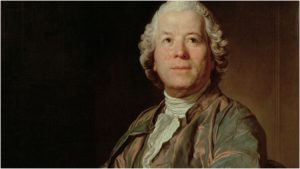
Composer Profile: The Revolutionary Christoph Willibald Gluck
By David SalazarFew composers in the history of opera were as influential as Christoph Willibald Gluck.
Born on July 2, 1714, the composer was one of the major reformers of the artform of his day. He was noted as being critical of opera of his day and how it had strayed from its origins. He sought to bring back the sense of balance between music and text.
“It was my intention to confine music to its true dramatic province, of assisting poetical expression, and of augmenting the interest of the fable; without interrupting the action, or chilling it with useless and superfluous ornaments; for the office of music, when joined to poetry, seemed to me, to resemble that of coloring in a correct and well-disposed design, where the lights and shades only seem to animate the figures, without altering the out-line,” he famously stated.
Among his major reformers were cutting the usual da capo aria and simplifying the recitativo. The results were operas that were far shorter than other baroque operas of the day.
He composed 49 operas in total, his first, “Artaserse” coming in 1741 and his final, “Echo et Narcisse” appearing in 1779.
Major Works
Most would point to “Orfeo et Euridice” as the crowning achievement in Gluck’s oeuvre and they wouldn’t be far off the mark. The opera is his most popular, most consistently performed, and among the most revolutionary of the time, incorporating ballet seamlessly into the drama. Unlike other works, where ballet is simply an “add-on” to the dramatic proceedings, dance is very much a part of the drama in “Orfeo.”
But to only highlight “Orfeo” would be to overlook to other masterpieces, namely “Alceste” and “Iphigénie en Tauride” which furthered Gluck’s operatic reforms and perfected them.
Watch and Listen
Here is Herbert Von Karajan’s well-known interpretation of the opera starring Giulietta Simionato, Sena Jurinac, and Graziella Sciutti.
And here is “Iphigénie en Tauride” starring Anna Caterina Antonacci.
Categories
Opera Wiki

